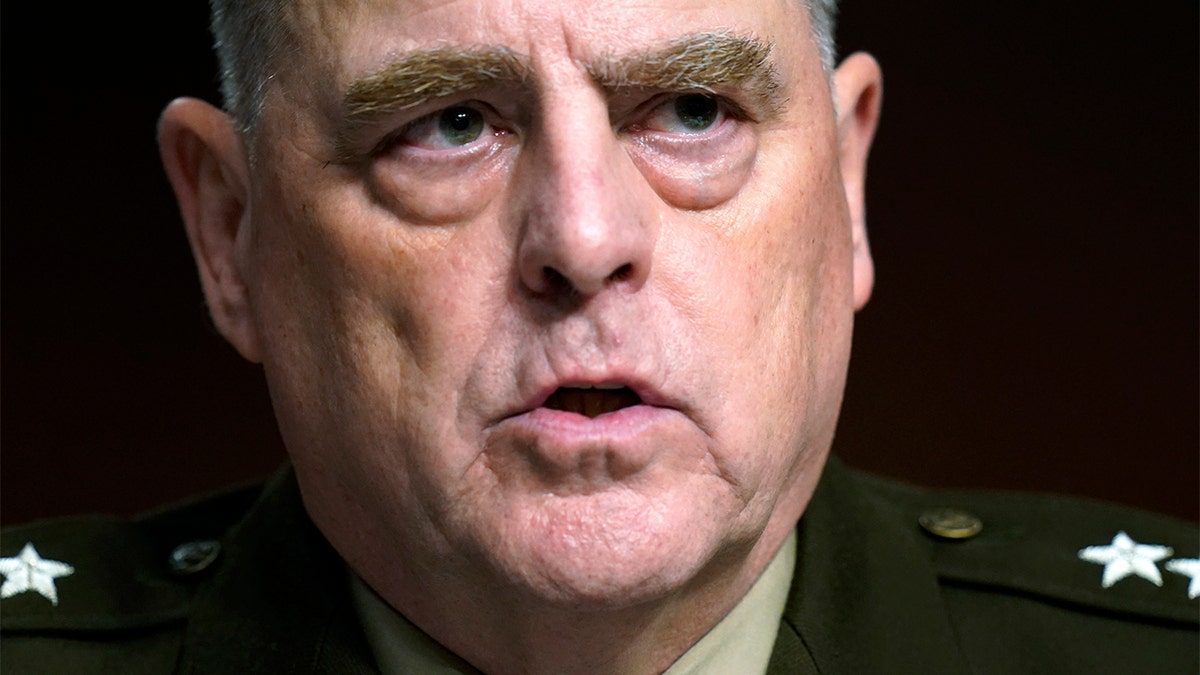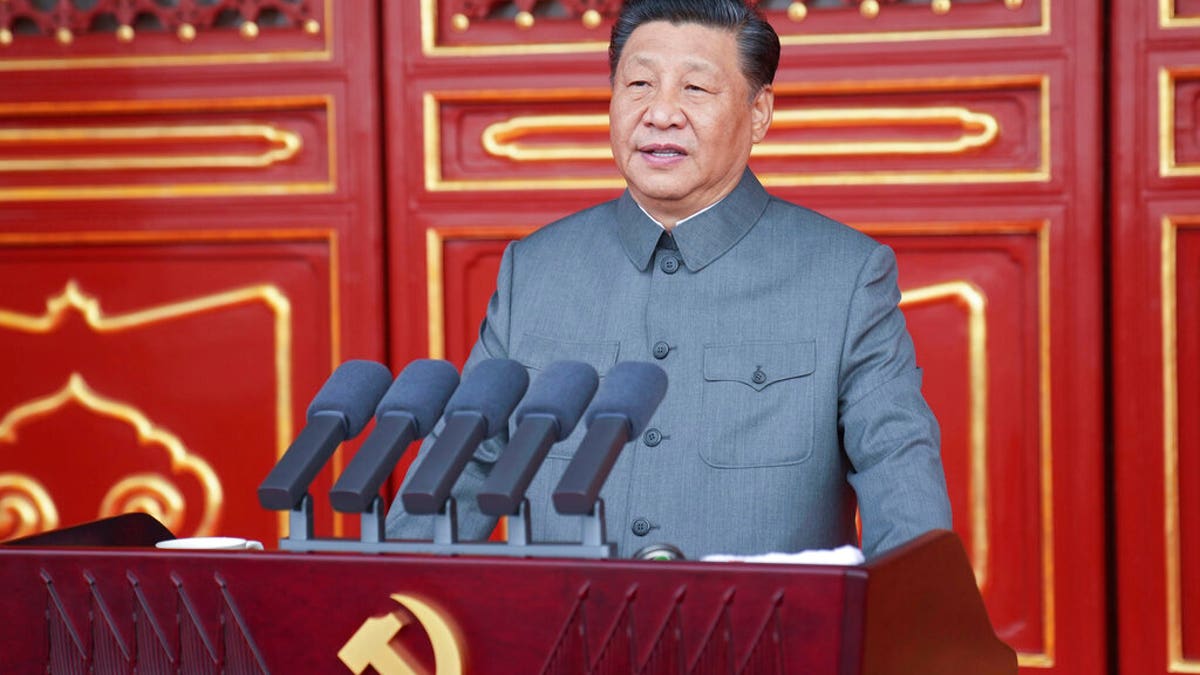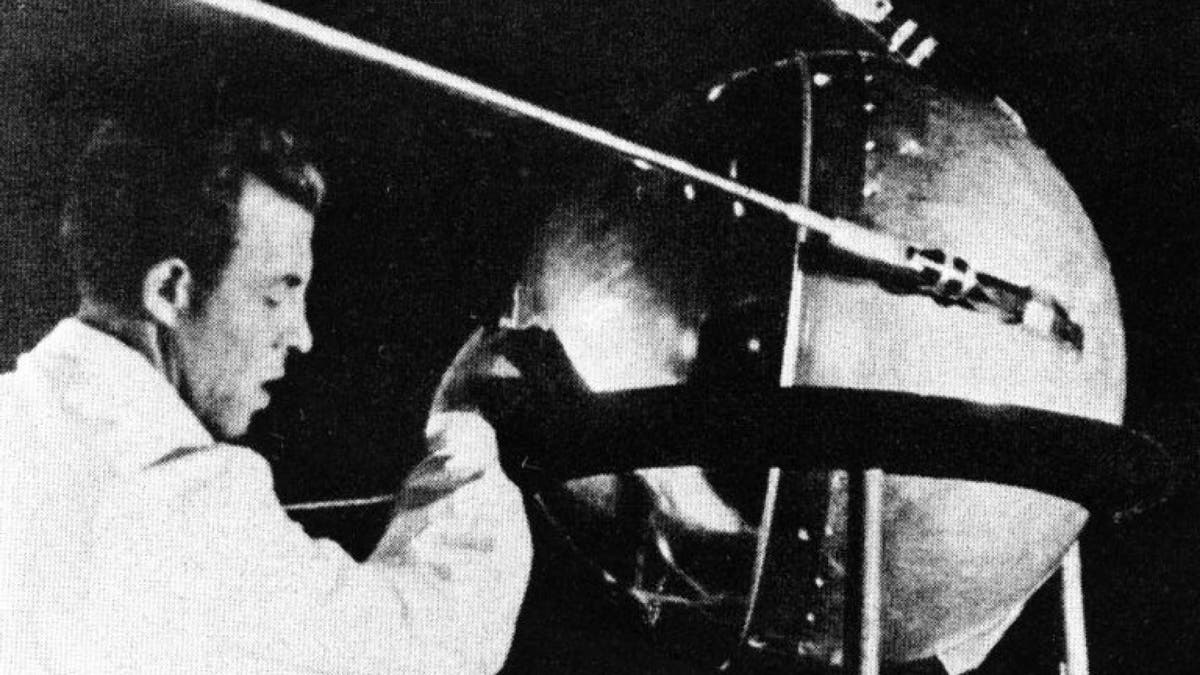Cotton: America's choice on war with China is to 'win it'
Sen. Tom Cotton, R-Ark., joins 'Special Report' to share concerns regarding the rising threat of China.
Chairman of the Joint Chiefs of Staff Gen. Mark Milley says that China’s suspected test of a hypersonic weapon is "very concerning" and likened it to the "Sputnik moment" that occurred as the Soviet Union and the United States were competing in the space race in the late 1950s.
"What we saw was a very significant event of a test of a hypersonic weapon system. And it is very concerning," Milley said this week during an interview on Bloomberg’s David Rubenstein show. "I don't know if it's quite a Sputnik moment, but I think it's very close to that. It has all of our attention."

Chairman of the Joint Chiefs of Staff Gen. Mark Milley speaks during a Senate Armed Services Committee hearing on the conclusion of military operations in Afghanistan and plans for future counterterrorism operations, Tuesday, Sept. 28, 2021, on Capitol Hill in Washington. (AP Photo/Patrick Semansky, Pool) (AP Photo/Patrick Semansky, Pool)
White House Press Secretary Jen Psaki acknowledged Milley’s comment in a White House briefing Wednesday saying, "I think what he was conveying was the concern we all have about China's military modernization efforts. They continue to pursue capabilities that increase tensions in the region, and we continue to have concerns about that."
Gen. Mark Milley, chairman of the Joint Chiefs of Staff, was the first Pentagon official to confirm on the record the nature of a test this year by the Chinese military that the Financial Times had reported was a nuclear-capable hypersonic weapon that was launched into space and orbited the Earth before re-entering the atmosphere and gliding toward its target in China.

In this photo provided by China's Xinhua News Agency, Chinese President and party leader Xi Jinping delivers a speech at a ceremony marking the centenary of the ruling Communist Party in Beijing, China, Thursday, July 1, 2021. (Li Xueren/Xinhua via AP) (Bret Baier breaks down the origins of socialism)
Milley said he could not discuss details because aspects involved classified intelligence. He said the United States also is working on hypersonic weapons, whose key features include flight trajectory, speed and maneuverability that make them capable of evading early warning systems that are part of U.S. missile defenses. The U.S. has not conducted a hypersonic weapon test of the sort Milley said China had achieved.
Milley has been heavily criticized during his tenure as Chairman of the Joint Chiefs, both for leading what some consider making the military "woke," and for the hasty withdrawal from Afghanistan on his watch.
China has disputed Western news reports about its test, saying it was working on technology for a re-useable space vehicle for peaceful purposes.
TOM COTTON WARNS JOE BIDEN ‘NOT UP TO’ TAKING ON LOOMING COLD WAR WITH CHINA
Pentagon press secretary John Kirby declined to comment on the test or on Milley’s remarks beyond saying that China’s work on advanced hypersonic weaponry is among a "suite of issues" that cause the Biden administration to be concerned by "the trajectory of where things are going in the Indo-Pacific."
Asked about progress on U.S. hypersonic weapon technologies, Kirby said it "is real, it’s tangible, and we are absolutely working toward being able to develop that capability." He declined to provide specifics.

A Soviet technician works on Sputnik 1 before the satellite's Oct. 4, 1957, launch. (NASA)
CLICK HERE TO GET THE FOX NEWS APP
In addition to its advances in hypersonic weapons, China has been expanding its network of underground silos that could be used to launch intercontinental-range nuclear missiles, and it has rebuffed U.S. calls to join nuclear arms control talks. The U.S. also has raised concerns about what it calls Chinese efforts to intimidate Taiwan, the self-ruled island that China claims as part of its territory, and to claim disputed islands and other land features in the South China Sea.
The then-Soviet Union's Sputnik was the first artificial satellite humans had ever put into space. Its October 1957 launch ignited the space race, led to the creation of NASA, and eventually to the American manned missions to the Moon.
Associated Press contributed to this report














































